|
The 20 March is the day of St Cuthbert, and here is a short film about his life: https://www.youtube.com/watch?v=DFG2rgxfra8&t=3s The painting of St Cuthbert during prayer is made by the Orthodox brotherhood on the Isle of Mull.
0 Comments
st theodore of tyro and sunday of orthodoxy 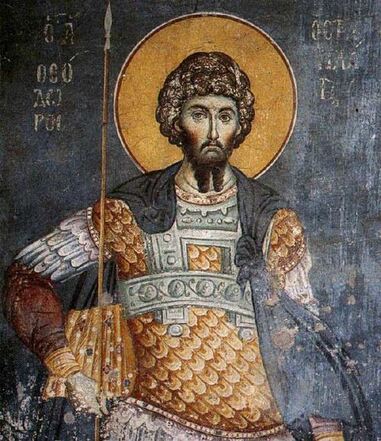 ST THEODORE OF TYRO - THE RECRUIT Each year on the first Saturday of Great Lent, our Holy Church commemorates St Theodore the Recruit. According to the time-honoured tradition, this feast is dedicated to St Theodore of Tyro, known as St Theodore the Recruit, and to his miraculous appearance to Eudoxius, archbishop of Constantinople, during the reign of emperor Julian the Apostate (332-363). The story involving this miracle is well known. Emperor Julian was called the Apostate because during his rule as Caesar (355-361) and then Augustus (361-363) he attempted to restore the pagan cults and to eradicate Christianity. To fulfill this aim, he enacted a range of legal measures, including the persecution of Christians. The Emperor was known for his mocking attitude towards Christianity, which is clearly evident in the few written works of his that have been preserved — most notably in his satires "The Caesars" and "Misopogon," as well as in the remaining fragments of "Against the Galileans." By "Galileans" he means the Christians. Christ Himself he mockingly called "the Galilean," and the Christian churches "ossuaries," due to their possession of Holy Relics. As part of his campaign against the Christians, during Great Lent he decided to mock them by secretly commanding that all Lenten food at the market was to be sprinkled with blood from pagan-sacrificed animals. His aim was to then announce all Christians as pagans, regardless of the fact that they had eaten these foods without knowing of his deed. Through God's gracious providence, however, says the agiographer, St Theodore sensed this plan. He warned Eudoxius, the archbishop of Constantinople, who took action, as a result of which the Emperor's plan failed. In remembrance of this event and in thanks to God's intervention through St Theodore, the Church has ordained that on the first Saturday of Great Lent the miracle performed by the Saint is to be commemorated. The Christians bless specially cooked wheat - “kolivo” - in commemoration of the “miracle with the kolivo”: in order to prevent Christians from eating food which was sprinkled with idolatry blood, St Theodore told the archbishop to tell all Christians to eat boiled wheat with honey for a week. Apart from this, the memory of St Theodore is celebrated on the 17th of February, on the day of his martyrdom. St Theodore was a Roman soldier who was imprisoned - hence the name "the Recruit" - after being accused for arson attack on a Roman temple, and martyred after he confessed his Christian faith by being thrown into fire. www.oca.org/saints/lives/2021/02/17/100547-greatmartyr-theodore-the-tyro-the-recruit The Saturday of St Theodore was established as a feast by the holy Empress Theodora II (842-856). It was ordained that it was to be celebrated directly before the Sunday of Orthodoxy, so as to also commemorate the deed of the Empress, who was the wife of the iconoclast emperor Theophilus and the mother of Emperor Michael III, thanks to whom the icon-worship was restored. Not coincidentally is the Sunday of Orthodoxy celebrated the next day: a commemoration of all those who have fought for the sanctity and fullness of Orthodoxy.” Written by Ventzislav Karavaltchev Translated into English by Daniil Gerov sunday of orthodoxy 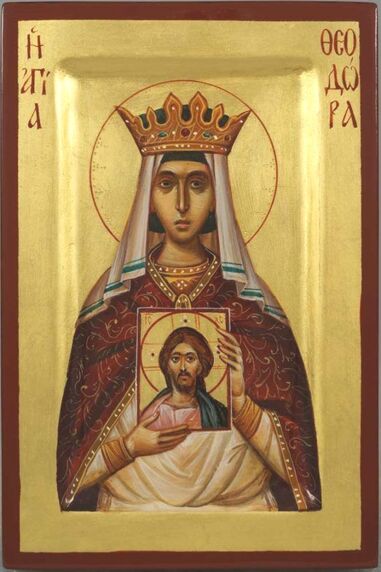 "Let us clap our hands for joy seeing this great blessing that we have received, how the divided members of Christ have been brought to unity! Let us praise the God Who has bestowed peace upon us! - Today the Church is given the festival of victory through the divinely-inspired order and will of our gracious emperors Michael and Theodora who in piety uphold the true Faith. - The sword of heresies has failed and we experience a holy joy, O spotless Virgin, as we see your whole Temple reverently adorned with the holy icons. - Let the mystical trumpets of Christ's Apostles sound forth in harmony, proclaiming the restoration of the holy icons. - Depicting Thy divine form in the icons, O Christ, we openly sing of Thy Nativity, Thine ineffable miracles and Thine voluntary Crucifixion. - The icons of the prophets, apostles and martyrs, the images of all the saints, adorn the heavenly Jerusalem which shines with spiritual beauty of the Bridegroom and the unwedded Bride." (From the Canon and the Sessional hymns of the Sunday of Orthodoxy - the First Sunday of Great Lent) Edited and compiled by Vera Davidova-Pote CATECHETICAL HOMILY
AT THE OPENING OF HOLY AND GREAT LENT + BARTHOLOMEW BY GOD’S MERCY ARCHBISHOP OF CONSTANTINOPLE-NEW ROME AND ECUMENICAL PATRIARCH TO THE PLENITUDE OF THE CHURCH, MAY THE GRACE AND PEACE OF OUR LORD AND SAVIOR JESUS CHRIST, TOGETHER WITH OUR PRAYER, BLESSING AND FORGIVENESS BE WITH YOU ALL * * * Most honorable brothers and blessed children in the Lord, With the good-will and grace of God, the giver of all good things, we are entering Holy and Great Lent, the arena of ascetic struggles. The Church knows the labyrinths of the human soul and the thread of Ariadne, the way out of all impasse – humility, repentance, the power of prayer and the sacred services of contrition, fasting that eliminates the passions, patience, obedience to the rule of piety. And so the Church invites us once again this year to a divinely inspired journey, whose measure is the Cross and whose horizon is the Resurrection of Christ. The veneration of the Cross in the middle of Holy and Great Lent reveals the meaning of this whole period. The word of our Lord echoes strikingly: “Whoever desires to follow me … let them lift their cross each day and follow me” (Lk 9.23). We are called to lift our own cross, following the Lord and beholding His life-giving Cross, with the awareness that the Lord is the one that saves and not the lifting of our cross. The Cross of the Lord is “the judgment of our criteria,” “the judgment of the world,” and at the same time the promise that evil in all its forms does not have the final word in history. In looking to Christ and under His protection, as the One who permits our struggle, while blessing and strengthening our effort, we fight the good fight, “afflicted in every way, but not crushed; perplexed, but not driven to despair; persecuted, but not forsaken; struck down, but not destroyed” (2 Cor 4.8–9). This is the experiential quintessence also during the present period of the Cross and the Resurrection. We are on a journey to the Resurrection through the Cross, through which “joy has come to the whole world.” Some of you may wonder why the Church, in the midst of the current pandemic, would add to the already existing health restrictions yet another “quarantine,” namely Great Lent. Indeed, Great Lent is also a “quarantine,” a period that lasts forty days. Nevertheless, the Church does not aim to weaken us further with additional obligations and prohibitions. On the contrary, it calls us to give meaning to the quarantine that we are living as a result of the coronavirus, through Great Lent, as liberation from enslavement to “the things of our world.” Today’s Gospel reading establishes the conditions of this liberation. The first condition is fasting, not in the sense of abstaining only from specific foods, but also from those habits that keep us attached to the world. Such abstinence does not comprise an expression of contempt of the world, but a necessary precondition for reorienting our relationship with the world and for experiencing the unique joy of discovering the world as the domain of Christian witness. This is why, even during this stage of fasting, the approach and experience of the life of the faithful have a paschal dimension, the taste of the Resurrection. The “Lenten atmosphere” is not depressing, but joyous. It is the “great joy” that was proclaimed as good news by the angel “to all people” at the birth of the Savior (Lk 2.10). This is the unwavering “fulness of joy” (1 Jn 1.4) of life in Christ. Christ is always present in our life – He is closer to us than we are to ourselves – all the days of our life, “unto the end of the ages” (Mt 28.20). The life of the Church is an unshakeable witness to the grace that has come and to the hope of the Kingdom, to the fullness of revelation of the mystery of the Divine Economy. Faith is the response to God’s loving condescension to us; it is the “Yes” of our whole existence to Him, who “bowed the heavens and descended” in order to redeem the human race “from the slavery of the enemy” and in order to open for us the way toward deification through grace. The sacrificial love for the neighbor and the “care” for the whole creation spring from and are nurtured by this gift of grace. If this charitable love for others and the god-pleasing concern for creation are absent, then my neighbor becomes “my hell” and creation is abandoned to irrational forces, which transform it into an object of exploitation and into a hostile environment for humankind. The second condition of the liberation promised by Great Lent is forgiveness. Oblivion of divine mercy and God’s ineffable beneficence, breach of the Lord’s commandment that we should become “the salt of the earth” and “the light of the world” (Mt 5.13-14), and a false transformation of the Christian way of life: to all of these attitudes leads a “closed spirituality” that thrives on the denial and rejection of the “other” and of the world, wipes out love, forgiveness and the acceptance of the different. Yet, this barren and arrogant attitude of life is denounced emphatically by the word of the Gospel on the first three Sundays of the Triodion. It is known that such extremes are especially prevalent during periods when the Church invites its faithful to spiritual discipline and vigilance. However, the authentic spiritual life is a way of internal renewal, an exodus from our selves, a loving movement toward our neighbor. It is not based on syndromes of purity and exclusion, but on forgiveness and discernment, doxology and thanksgiving, according to the experiential wisdom of the ascetic tradition: “It is not food, but gluttony that is evil … not speaking, but idle speech … not the world, but the passions.” With this attitude and these sentiments, we join our prayers with all of you, beloved brothers and children, that we may definitively overcome the lethal pandemic and swiftly respond to its social and economic consequences. And we ask for your beseeching supplications, too, for the reopening of the Sacred Theological School of Halki, after a long period of fifty years that has passed since its silence was imposed externally and fully unjustly, as we welcome Holy and Great Lent in the Church, singing and chanting together “God is with us,” to Whom belongs the glory and might to the endless ages. Amen! Holy and Great Lent 2021 BARTHOLOMEW of Constantinople Fervent supplicant for all before God ------------------- This is a photograph of a planter in our garden. Every time I look at it, I see the eye of an elephant looking at me! What about the car on the right? I bet you see a smiley face. This tendency for the incorrect perception of a stimulus as an object, pattern or meaning is known as Pareidolia. This ability can be great fun and can be helpful in developing our imagination and creativity. However, as with most things there can be dangers associated with it too! This is not too dissimilar to reading the Holy Scriptures. One needs only to scan some of the contemporary popular ‘Spiritual/Christian’ books to see how incorrect perceptions and understandings abound. In our Gospel reading for this Sunday we read our Lord’s parable of the Last Judgment. When Christ will come and judge us. When “All the nations will be gathered before Him, and He will separate them one from another, as a shepherd divides his sheep from the goats. And He will set the sheep on His right hand, but the goats on the left” (Mat 25v32-33), and how “…He will also say to those on the left hand, ‘Depart from Me, you cursed, into the everlasting fire prepared for the devil and his angels” (v42). These verses can leave us anxious and fearful; they can leave us with the image of a God who judges with a strong belief in retribution and punishment. Equally we can read how “Come, you blessed of My Father, inherit the kingdom prepared for you from the foundation of the world: for I was hungry, and you gave Me food; I was thirsty, and you gave Me drink; I was a stranger, and you took Me in; I was naked, and you clothed Me; I was sick, and you visited Me; I was in prison and you came to Me.” These verses may lead us to think that what God requires of us is social activism. A God who is not so interested in the person but rather the ‘common good’. These thoughts and impressions may have a degree of validity, but if this is all we see then we are missing the point of the parable. This parable is about Christian love – no more, no less. Love of God and love of neighbour. We each have a responsibility to love. It may not be possible to perform great humanitarian acts, to feed or provide drink for the hungry and parched of this world, to house the homeless and destitute, or to visit the sick or those who are incarcerated. But we can all take responsibility for sharing the love we have in Christ with those who share that small part of Gods kingdom for which we have been made accountable. Remembering “… inasmuch as you did it to one of the least of these My brethren, you did it to Me.’ (v40) As we begin our preparations for the Great Fast, we need also to ensure that our perceptions and understanding of what is required of us as we fast are correct. The Christian life is essentially directed toward three focal points – God, our neighbour, and our soul. Through prayer we orientate ourselves toward God; almsgiving turns our attention toward neighbour and fasting toward self. There are few references to fasting in the New Testament, not because it can be ignored but because it is assumed; ‘Moreover, when you fast,…’ (v40), not ‘If’ but ‘When’! For most, a fast is an extended period of time when one eats nothing. And for the early Church this was what fasting was. However, for us, the practice is (with welcome modifications) a vegan diet with crustaceans permitted. It is not something to be undertaken to show one’s piety, “Moreover, when you fast, do not be like the hypocrites, with a sad countenance. For they disfigure their faces that they may appear to men to be fasting…when you fast, anoint your head and wash your face, so that you do not appear to men to be fasting.” (Mat 6: 16-18). Like prayer and almsgiving, fasting is, in a literal sense, practical; it is something we do; Jesus expects it and the church requires it. Because, as Fr Thomas Hopko teaches us ‘The effort enlightens the mind, strengthens the spirit, controls the emotions and tames the passions. And so, as we prepare and continue on our journey to Pascha let us stand with Blind Bartimaeus and say “Lord, that I may receive my sight.” (Mark 10 v51). Let us be sure about what we are looking at. Let us not be deceived or misled by incorrect perceptions or understandings. Let us not live in fear judgement and retribution but rejoice in the God who is love. Let us not focus on what we are giving up but rejoice in what we are gaining. Father Julian 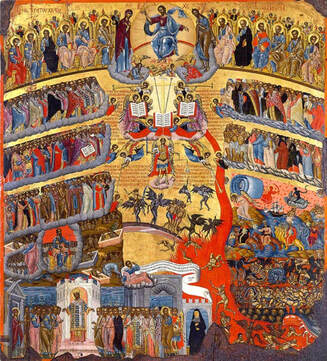 "“Let us not be taken prisoner by our eyes; let not our tongue delight in costly food, for once they have been eaten they are worthless; let us shun all greed, then we shall not become slaves to the passions which follow an excess of food and drink (Triodion) 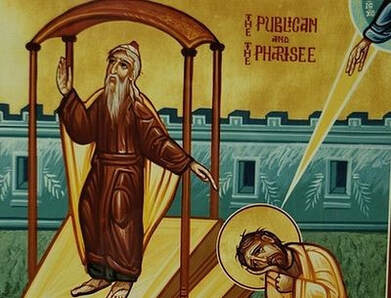 It is remarkable that Our Lord is never, or hardly ever, the subject of abuse. Many will disregard his teachings or fail to believe but usually they show respect. This is not surprising because Christ proclaims truth and within everyone, made in the image of God resides an understanding of truth, alongside understanding of right and wrong. As we move towards Great Lent, now only four Sundays away, it is worth emphasising that Lent is about the discovery of truth. In our self-evaluation, we discover the truth about ourselves. Today, as we consider the parable of the Publican and the Pharisee, there is a challenge of two questions, “Am I more like the Pharisee or am I more like the Publican?” The key aspect of the Pharisee is that he ‘stood and prayed with himself’, glad that he was not like other men, pleased that he was good living, fasting twice each week and generous in the tithes he gave. The key aspect of the Publican was that he ‘stood afar off and would not so much as raise his eyes to heaven but beat his breast, saying, “God, be merciful to me a sinner!” We have to take pride in ourselves and be glad that we pray, fast and express the gifts of the Holy Spirit, ‘... patience, kindness, goodness....’ We should also be glad that we are generous to others. But we also have to seek the truth within ourselves and our behaviour to be sure that pride is not blinding us and keeping us away from change and from God. We have to be sure that there is always a call for God’s mercy - corrective loving kindness. Are we more like the Pharisee or the Publican? Probably a mixture of both and our Lenten journey will help us sort this out. Great Lent is not only of repentance as an evaluation of sinfulness but also of joy as we discover the truth within us. We seek to be master of our passions, so that we have within us the restored divine likeness in our soul. The restored divine likeness in our soul! May God give His Blessing. Fr David 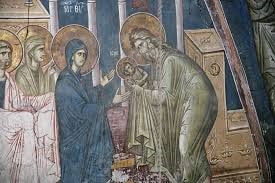 On 15th February, on the Old Calendar, we celebrate the Feast of the Meeting of Our Lord in the Temple. This is known in the West as the Presentation in the Temple. According to the Law of Moses, every firstborn male was to be presented in the Temple on the fortieth day after birth and Jesus’ parents did this in obedience as required. The Meeting, however, has a much more profound meaning; the newly born Jesus met the Elder Simeon in the Temple on this day. Simeon had been told by God that he would not see death until he had seen the Lord’s Anointed. He must have received many presented boys over the years, but he knew that this one was not only special, but very special. Indeed, he recognised him as the very one he was waiting for, the Son of God, The Lord’s Anointed. In his delight, he cried out the beautiful hymn which we sing at vespers every day; “Lord, now your servant can depart in peace for (because) my eyes have seen Your Salvation! As he held the child Jesus in his arms, he was further able to say, “(This child) is a light to enlighten the Gentiles and to be the glory of Your people Israel”. This was a Theophany, a revealing of God. Jesus’ birth had been a rather private affair, witnessed only by Mary his mother, Joseph, probably a ‘midwife’ and some of Joseph’s, and, perhaps, Mary’s relatives. Then there were shepherds and much later, Wise Men from the East, but this for others, was a birth amongst births of no special note to the general population at the time. Now at the 40th day, in the Temple, the Theophany is more in the public eye and word of Simeon’s acclamation would have spread about. This Theophany was also witnessed by the prophetess Anna, who had been constantly at prayer in the Temple for many years. Simeon not only said, “Now mine eyes have seen Thy Salvation which Thou hast prepared before all people, a light to enlighten the Gentles and to be the glory of thy people Israel”. He proclaimed a great message for us; the child in the arms of Simeon, “a light to enlighten the Gentiles”, is for us, as we welcome the Lord Jesus into our arms, that we too maybe enlightened. This is the truth revealed by the Canaanite woman. She, a Gentile, had heard of Jesus and now came to him to ask him to help her daughter. Initially, he challenged her, ”I have only come to the lost sheep of Israel (“to be the glory of Israel “), It is not right to give the children's food to dogs”, The Canaanite woman was not insulted by this but accepted the challenge in humility, saying with great faith, “Even the dogs eat the crumbs from the Master’s table!”. She was implying, she would willingly be a dog to feast on the crumbs which Christ might drop” To this, Our Lord acknowledged her profound faith and for the first time (according to the record) reached out to a Gentile to bring healing for her daughter and enlightenment. This is why the Meeting in the Temple supported by this encounter with the Gentile woman is, for the Orthodox Church, a much more profound understanding than simply a record of Our Lord’s, through his parents, acquiescence to the Law of Moses. In the West, and particularly according to an old English custom, this Feast is also known as Candlemas. At the end of the Liturgy on this day, we processed around the inside of the Church with lighted candles, symbolising the Light of the World. Whilst doing this, we sang the hymn. Blest are the pure in heart, for they shall see our God; the secret of the Lord is theirs, their soul is Christ’s abode. It is, as in the Beatitudes, the pure in heart that see our God. With this purity to which we all aspire, we are led to understand His secret, a secret only revealed to those who truly seek Him. Then, our soul can be filled with Christ our Lord, as we hold him close to us as did the Elder Simeon on this great Feast which we celebrate today. For Christ is the Light to enlighten the Gentiles as we draw close to Him. Fr David 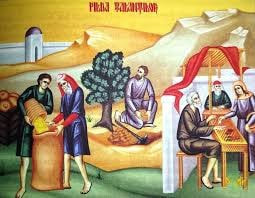 I have recently discovered an old book that I would like to commend to you. "The Insect", published in 1875, is one of four remarkable works in which the late Jules Michelet embodied the results of a loving and persevering study of Nature. These works are absolutely unique; the poetry of Science has never before illustrated on so large a scale, or with so much vividness of fancy, or in so eloquent a style. The aspects of Nature were never before examined with so strong an enthusiasm or so definite an individuality, —with so eager a desire to identify them with the feelings, hopes, and aspirations of humanity. The author approaches his subject neither as philosopher nor as poet, but yet with something of the spirit of both. His philosophy and poetry, however, both subordinate to his ardent sympathy with what he conceived to be the soul, the personality of Nature. Let me show you what I mean… "…. the ants toiling in the sand, the quarrymen working in the sandstone. Both are of the same race; the men are ants on the surface, and the ants are men below. I admired the resemblance in their destiny, in their laborious patience, in their admirable perseverance. The sandstone is a very refractory and rebellious substance, and often splitting badly, subjects the poor workmen to severe disappointments. Those especially who are forced by a protracted winter to return to the quarry before the end of the bad weather, find the hard and yet porous blocks excessively damp and half frozen. As a result, they have numerous ill-wrought stones, and a mass of waste. However, they do not lose their courage; and without murmuring recommence their painful toil." We really only need read the scriptures and listen to our Lord’s teachings to see how much we can learn from nature and the world around us. I think it was Sir Frances Bacon who wrote, “God has, in fact, written two books, not just one. Of course, we are all familiar with the first book he wrote, namely Scripture. But he has written a second book called creation.” Despite being a veritable repository of wisdom, ‘The Book of Proverbs’ is not a book we tend to quote, or refer to, very often. One of my favourite passages is Proverbs 6:6 ‘Go to the ant, you sluggard! Consider her ways and be wise.’ Throughout the scriptures our Lord commands us to ‘watch’ and to ‘work’. Indeed, in our gospel reading for this Sunday we read how our Lord praises those who multiply their given talents and condemns the slothful who bury their talents. In our Epistle reading St Pauls begins “We then, as workers …” and goes on to refer to ‘labours’ and ‘patience’, as does Michelet. Michelet refers to the ‘painful toils’; St Paul speaks of ‘tribulations’ and ‘tumults’. How sad for us that we need to be directed to emulate the example of an ant, an irrational creature. Since the leave-taking of Theophany, each of our Sunday gospel readings has been preparing us for the approach of Great Lent (15th March) and today’s gospel reading is no different. We are reminded that we have work to do! We are preparing to embark on a journey, a pilgrimage: with much work to be done as we turn (repent) and refocus on our spiritual life. We must not allow ourselves to be slothful. We can hardly find a better example of why we should not be lazy or procrastinate in prayer and spiritual work than by this example, given to us by St. Ephraim the Syrian: “Once a brother was inspired by the devil to think: ‘Give yourself rest today and tomorrow rise for vigil.’ But he answered the thought, ‘Who knows, perhaps, I will not even get up tomorrow, that is why I need to rise today.’ Before work, he was also inspired with this thought: ‘Give yourself rest today and complete your work tomorrow.’ And again, he responded, ‘No, I will complete my work today, and the Lord will take care of tomorrow.’” St. Anthony teaches: “Before the dawn of each day, arrange your life as though it is your last day on earth and you will protect yourself from sins.” St. Nikolai Velimirovich tells us that, “Slothfulness is one of the deadly sins, for it deadens the soul in man. A slothful soul is a nest of vices; a slothful soul is a habitation of the devil. O Lord Almighty, Thou Who, at the same time, art all peace and all work, deliver us from destructive slothfulness and move us by Thy Holy Spirit toward all good works, for the sake of the salvation of our souls.” Fr Julian 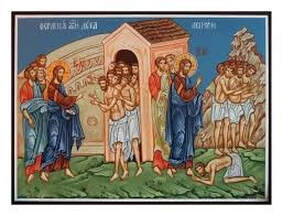 When we arrive at this particular Sunday, we know that Great Lent will soon follow, and we shall be able to more appropriately address the challenge it makes. Ten Lepers came to our lord for healing and this request was granted. They went away joyfully and excited, yet only one returned to say thank you. There was indeed need for great thankfulness. The life of a Leper in those days was challenging and full of misery. Our present “lock-downs” are devastating enough but, at least, are only temporary. For the one suffering from leprosy, it was a lifelong curse, only changed in recent times. The illness is contagious and, hence, to avoid its spread, the sufferer was separated from his/ her family, forbidden to meet with others, unable to attend Synagogue and, often, without means of livelihood. We are reminded of this in our own history when, in earlier times, Lepers could only receive communion at the Leper window without entering the Church (such a window is to be found at St Leodegarius). All were made to live away from the community in special hostels and required to ring a bell to warn every one of their presence when out and about. To be cured of the disorder of leprosy and again be admitted as a full member of community and be reunited with family and friends was an immense blessing and ground on which to be immensely thankful. No doubt all ten in the Gospel story were indeed grateful but only one retuned to Our lord to say, thank you! This story is a challenge for us, as we begin to prepare for Great Lent (still some weeks away), it is good to be aware that we too, like the nine, can, perhaps in exuberance, so easily forget to be thankful for all the blessings and gifts which God has poured upon us. It is so easy to take for granted and to forget. Lent will be a time to remedy this. We enter Great Lent, not to be miserable and chastened harshly but, among other things, to give thanks as we seek refreshment and newness of life. A clue to thankfulness is indicated in the Epistle for the day, 1Timothy 4: 9-15: “...be an example... in word, in conduct, in love, in spirit, in faith, in purity.... Do not neglect the gift that is in you, which was given to you........Meditate on these things; give yourself entirely to them... Continue in them, for in doing this you will save both yourself and those who hear you."! ! ! ! ! ! ! ! ! These are words of St Paul to encourage the new priest Timothy but are for all of us, in the priesthood of all believers. We hope that the Leper who returned to Our Lord became one of His disciples and learned to move into a greater fullness of life. Now that he was free of his affliction, he would indeed be able to accept and understand the life changing words given to the Apostle Timothy. Perhaps he was able to become a good witness of what life with Jesus was like, changed from outcast to inner disciple, restored. This is what we hope for ourselves and what Lent is about when we enter into what this season has to offer. Lent gives us a special set aside time to ensure that we do not neglect the gift that is in us. Great Lent leads us into greater thankfulness for what God has poured upon us and into our lives in a time for restoration. Thankfulness is the most important part of prayer; it pleases God and lifts up our own hearts. In our Christian life, our conduct, our outreaching love, the Spirit which governs our life and makes us more fully human, with firm faith and purity, in which we find ourselves. As one Father said, when visited by a group who were disappointed that he had nothing to say to them, replied “If you are not edified by my presence, you will not be edified by my words. The quality of our life is what counts and speaks more than words. Freed of limitation, as were the ten Lepers, so we, freed from whatever has been restricting us, enables us to stand thankfully in Christ and then, our presence in the world around, radiates His love and His saving grace. The society in which we live, so damaged by the Corona virus and the reaction to it, needs us, as committed, dutiful Christians, to proclaim by our witness that the foundations of this Nation are Christian, and only when its peoples return to an awareness and commitment to God the Creator Redeemer, will life be able to be on a sounder footing. Let all, like the tenth Leper, return to Christ with hearts of gratitude and thanksgiving. 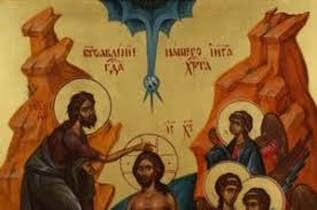 Well, whichever calendar you are using you will have now celebrated the feast of the Nativity and I do hope that it was truly blessed and joyful for you; although I am sure it wasn’t the celebration that you had planned! I was delighted to receive a really interesting book as one of my Christmas presents this year. The book, written by ‘Countdown’s’ Susie Dent, is an entertaining look at Etymology (the study of the origin of words and the way in which their meanings have changed throughout history). Have you ever come across ‘Janus words’, named after the Roman deity? Janus was traditionally depicted as having two faces which inspired several terms in English. Janus cloth, for example, is a reversible material, while a Janus lock can be fitted to either a left- or right-opening door. But perhaps the most enduring legacy of the two-faced deity is ‘Janus word': a term that has two diametrically opposed meanings. An example of a ‘Janus word’ would be ‘Dust’; to make free of dust; to sprinkle with dust. Or how about ‘Left’: went away from; remaining – I love this stuff! Going back to Christmas and the Feast of the Nativity, from the Latin term nativus, which means "born.", this a time of year when our imaginations tend to focus on the human family, with the occasional thought for the divine Father–Son relationship that is to be made visible in the obedient, loving life of Jesus of Nazareth. Much of Christmas can go by without mentioning the Holy Spirit. But God is Trinity – Father, Son and Holy Spirit – and all of God is involved in everything God does, including the Christmas gift. Today, we celebrate together, the Holy Theophany of Our Lord. The feast is called Theophany because at the baptism of Christ the Holy Trinity appeared clearly, to mankind, for the first time—the Father's voice is heard from Heaven, the Son of God is incarnate and standing physically in the Jordan, and the Holy Spirit descends on Him in the form of a dove. Troparion: Lord, when You were baptized in the Jordan, the worship of the Trinity was made manifest. For the voice of the Father gave witness to You, calling You Beloved; and the Spirit, in the form of a dove, confirmed the certainty of His words. Glory to You, Christ our God, who appeared and enlightened the world. As Orthodox Christians when we worship Gd we are worshiping the Father, Son, and Holy Spirit—the Holy Trinity, the one God. Following the teaching of the Holy Scriptures and the Church Fathers, the Church believes that the Trinity is three divine persons (hypostases) who share one essence (ousia). All three persons of the Trinity are consubstantial with each other, that is, they are of one essence (homoousios) and coeternal. There never was a time when any of the persons of the Trinity did not exist. God is beyond and before time and yet acts within time, moving and speaking within history. Now I’m not sure if it is ‘Janus’ or paradoxical to believe thus, but that is how God has revealed himself. The source and unity of the Holy Trinity is the Father, from whom the Son is begotten and also from whom the Spirit proceeds. Thus, the Father is both the ground of unity of the Trinity and also of distinction. To try to comprehend unbegottenness (Father), begottenness (Son), or procession (Holy Spirit) leads to insanity, says Saint Gregory the Theologian. I think C S Lewis gives us a lovely illustration of the inability of our minds to comprehend God. He writes, “Let us suppose a mystical limpet, a sage among limpets, who (rapt in vision) catches a glimpse of what Man is like. In reporting it to his disciples, who have some vision themselves (though less than he) he will have to use many negatives. He will have to tell them that Man has no shell, is not attached to a rock, is not surrounded by water. And his disciples, having a little vision of their own to help them, do get some idea of Man …. a sort of amorphous jelly (he has no shell) existing nowhere in particular (he is not attached to a rock) and never taking nourishment (there is no water to drift it towards him)”. I’m sure you get the picture. The point I am trying to make here is that we approach God in divine mystery, approaching God apophatically. That is understanding that God's essence is unknowable, recognising the inadequacy of human language to describe God; being content to encounter God personally and yet realize the inadequacy of the human mind to comprehend Him. And as we rejoice in the Holy Theophany let us remember that the baptism of Our Lord has been prepared since the creation of the world’ (Gen1:1In the beginning, God created the heavens and the earth). God the Father, creator of all things, presides at creation. The Spirit and the Word work with him, like the two hands of the Father. (Gen 1:2 The Spirit of God was moving over the face of the waters) Water, connected to the Spirit, is the element indispensable for life. The Spirit’s moving over the waters is the first image of the dove spreading its wings to fertilise the waters and to call life forth from it. (Gen 1:3 God said: “let there be light”; And there was light. The Word of God, the creative word, orders the elements and makes them to appear out of nothing. The earth without form or content (chaos or the desert) is the image of nothingness. In the desert, on the banks of the Jordan, the Trinity reveals itself in its work of creation. This is a new genesis for a new creation. The world, through the Spirit, is regenerated in the person of Christ, the new Adam. Canticle Five (Forefeast of Theophany) O Creator, who art the new Adam, Thou makest knew those born on earth, and Thou bringest to pass a strange regeneration and a wonderful restoration by fire and Spirit and water: without destruction or melting pot Thou dost renew mankind through the holy sacrament of baptism. Through the spirit dost Thou make souls knew and through the water dost Thou sanctify our body compounded from the elements, forming man afresh as a living being. For in wiser forethought, as physician alike of bodies and of souls, with profit Thou dost minister the remedies befitting both. Fr Julian |
Parish Blog
This mainly contains homilies and messages from our priests, although there is some scope to share thoughts and interesting articles which we may want to share with others Archives
October 2022
Categories |
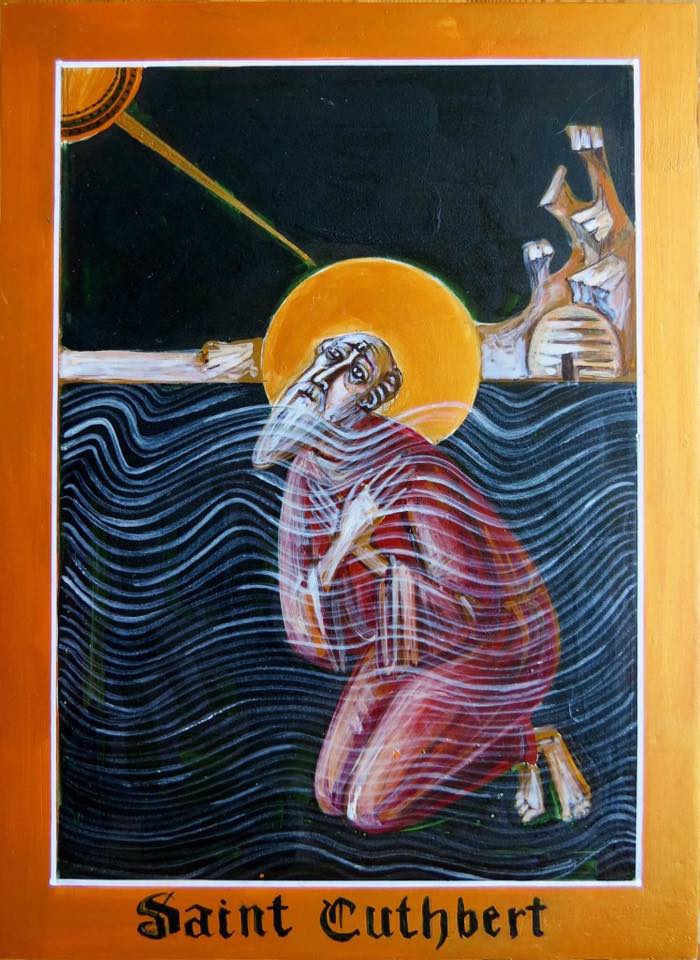
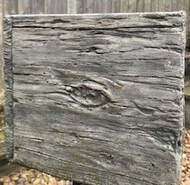
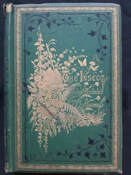

 RSS Feed
RSS Feed